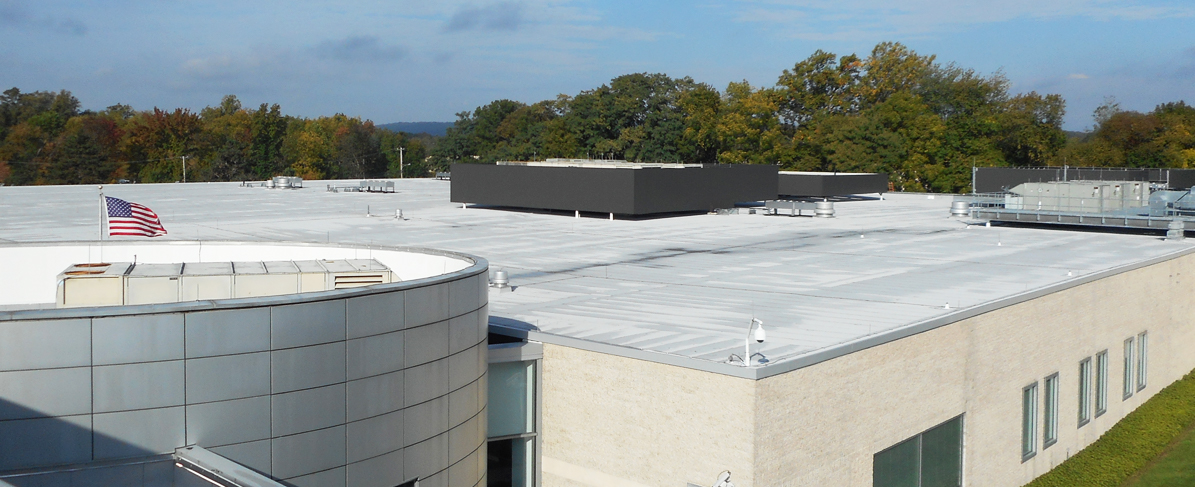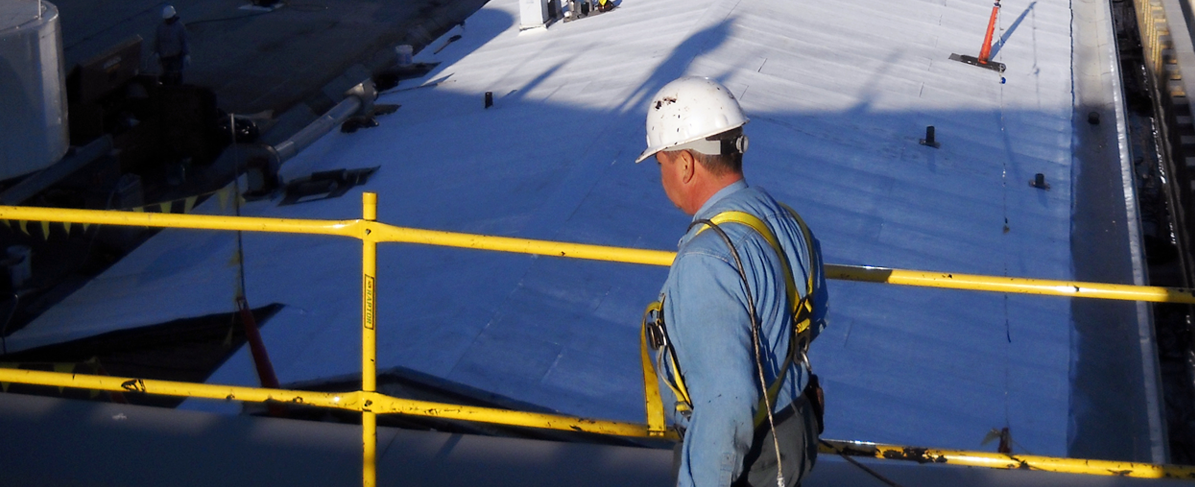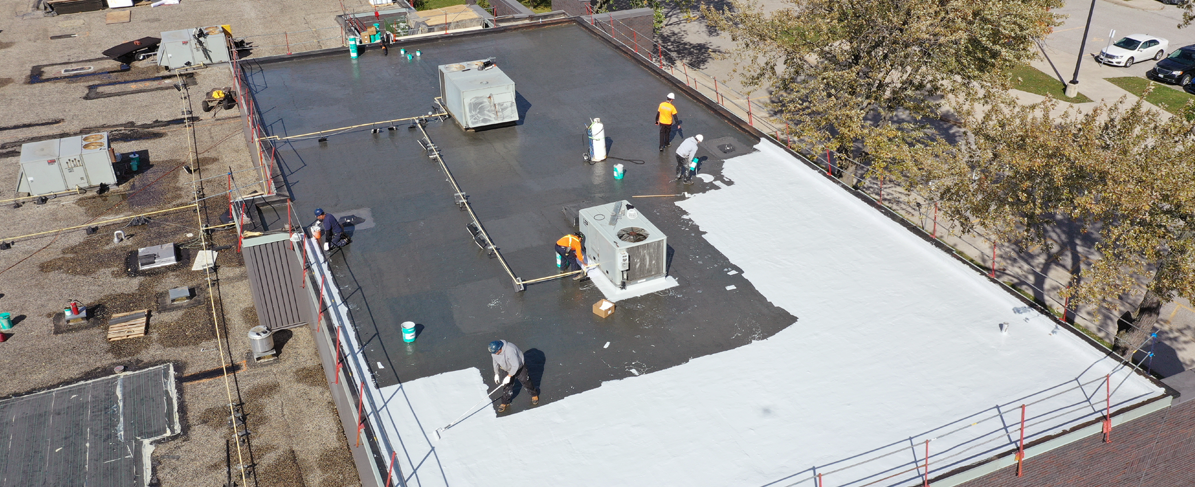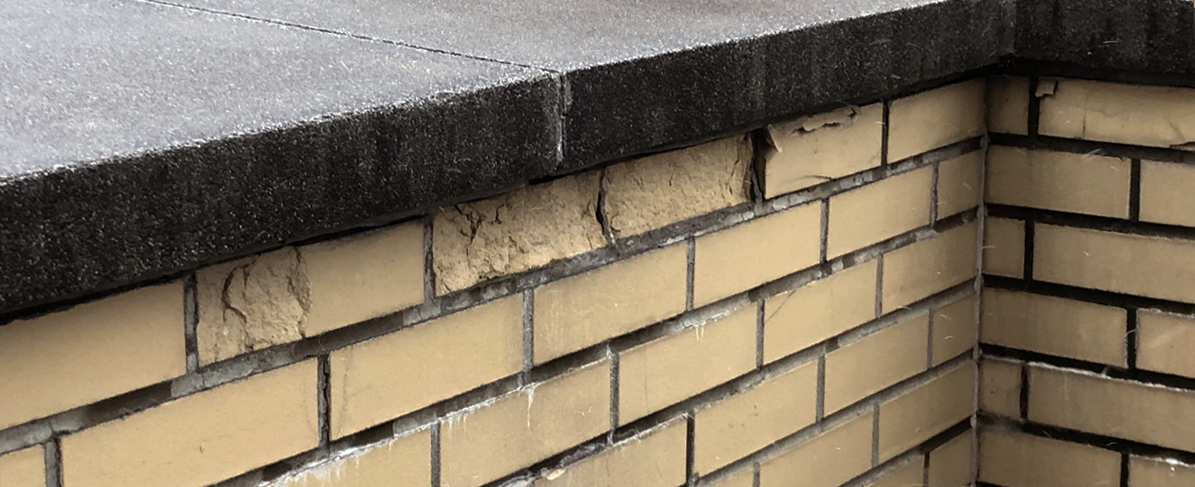Modified bitumen (MB or mod-bit) roofing membranes are a durable and long-lasting weatherproofing technology, incorporating overlapping bituminous sheets in a hot- or cold-applied configuration. If these membranes aren’t applied correctly, however, they can exhibit a few problems, including unsightly wrinkles and blisters which could potentially compromise the water-tight seal of your application.
Investigate the situation
The best way to troubleshoot these problems must be determined on a case-by-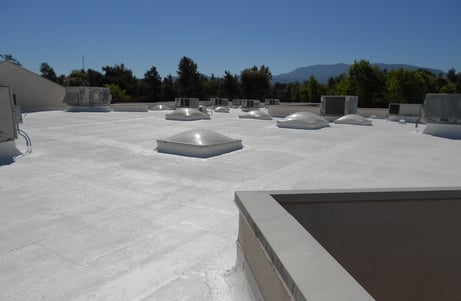 case basis, and the situation should be evaluated with both the roofer and the manufacturer. Below are some questions to consider in diagnosing the cause of wrinkles in mod-bit membranes:
case basis, and the situation should be evaluated with both the roofer and the manufacturer. Below are some questions to consider in diagnosing the cause of wrinkles in mod-bit membranes:
- Was this a hot-mopped application, a torch-applied installation or was the modified bitumen membrane applied in cold adhesive?
- Is the membrane solidly adhered or can it be easily lifted?
- What substrate was the membrane applied to? Insulation board, an existing roof membrane or a concrete deck?
Potential causes of wrinkling
Depending on these answers, here are some potential causes of wrinkling:
- The bitumen was too hot, and MB membrane was set in adhesive that was too hot, causing it to distort and wrinkle.
- The hot applied bitumen was too cold, and MB membrane is not properly adhered because it never melted into place.
- Cold applied adhesive was applied too thick and excess adhesive is still flashing off, causing the MB membrane to blister or distort.
- Cold adhesive was applied too thin so MB membrane was not properly adhered.
- The membrane was never rolled or properly pressed into place so that the underside of the membrane becomes fully embedded in the adhesive.
- Moisture could be trapped underneath, causing the MB membrane to distort or blister.
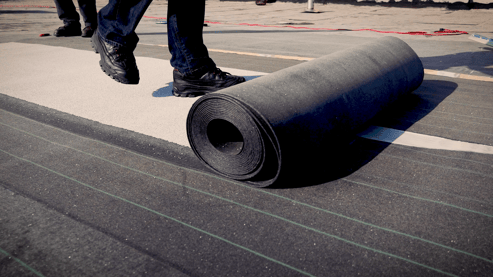 Summary
Summary
Modified bitumen membranes can offer exceptional weatherproofing protection, but only proper application will ensure longevity. You can avoid issues by reviewing the product data sheet and application instructions before installing any modified bitumen membrane.
Be sure to follow the manufacturer’s recommendations, such as application temperatures and ambient conditions. And if you find an unexpected condition occurring during installation, contact the manufacturer for help in determining the root cause and next courses of action.
